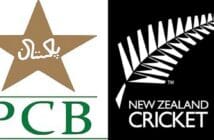
VP of the Scottish Police Federation David Hamilton says the repeal of OBFA is responsible for worsening sectarian and hooligan behaviour
The reputation of Scottish club football is at a low after a series of incidents at games across the country.
Kilmarnock manager Steve Clarke had to endure sectarian abuse from Rangers fans and their ex-Portland Timbers striker Kris Boyd had to endure it from Celtic fans, as well as being hit by a coin.
This week, a firework was thrown at St Mirren goalkeeper Vaclav Hladky by Celtic fans at Love Street, leaving the Czech keeper visibly shaken.
While Italy debates whether players should leave the pitch over racist chants, the threat to players in Scotland seems more imminent.
Saints manager Oran Kearney said he would have taken his team off the pitch had Hladky been hit. By the the Buddies had used all three substitutes but luckily and laudably, Hladky was willing to continue:
“Vaclav is okay,” Kearney said. “I had a brief chat with him but we’re just thankful that it wasn’t more sinister. But I was standing 50-60 yards away and it made me jump so I dread to think how loud it would have been for him.
“I could only see what you could see so I thought he might have to come off, which wasn’t ideal.
“We’ll check him out in the morning. We’d used all our substitutes by then and it’s crazy to think we might have had to use an outfield player in goal as a result of that. You’d have been tempted to walk your team off the pitch.”
Less lucky were three Celtic fans at the weekend.

St Mirren keeper Vaclav Hladky was affected by a firework thrown onto the pitch
On Sunday after the latest Old Firm match, a mass brawl erupted in Blackfriars Street in Glasgow’s Merchant City in which three men were stabbed, one of whom is still seriously ill in hospital. The perpetrators on this occasion appear to be Rangers fans.
Police are treating the attack on 47-year-old Francis McCann, a Celtic fan, as attempted murder.
Two other men, aged 29 and 30, were also stabbed in what Police Scotland have described as serious assaults. These well documented incidents of hooliganism and violence are not isolated.
Eye-witnesses to Sunday’s brawl described “horrific” and “disgusting” scenes in Glasgow’s Merchant City. A Rangers fan appeared in court for hurling sectarian abuse at Celtic fans before biting a policeman.
David Hamilton, vice-chairman of the Scottish Police Federation, said match authorities are battling “an escalation in violence” and said that behaviour at Sunday’s Old Firm game was ‘the worst in 15 to 20 years.”
Hamilton told BBC’s Sportsound:
“It’s despairing the way some fans are behaving in Scottish football. We’re seeing an escalation in violence both in terms of severity and frequency.
“At the weekend, some of the officers who were working at Celtic Park were saying it’s the worst they’ve seen in 15-20 years of service.”
In a precursor to events at St Mirren, he added:
“An officer had a flash-bang thrown at him that just missed his head.”
An officer who had been on the wrong end of a previous firecracker now has permanent hearing damage, he revealed on Twitter this week. He also revealed that Police Scotland have been forced to take out Burn Insurance for their officers.

Kilmarnock pair Steve Clarke and Kris Boyd have played across the world but still had to endure sectarian abuse from Rangers and Celtic fans. For Clarke, it should be treated as racism.
Kilmarnock manager Clarke spent much of both his playing and managerial career at Chelsea and had no doubt that the sectarian abuse such as he received from Rangers fans should be treated the same as the racial abuse suffered by Moise Kean in Cagliari and England players in Montenegro:
“We talk a lot in this country about racism and homophobic chants but sectarianism is something that just seems to be accepted in society. I don’t think that’s right in this day and age and that’s why I called it out after the game.
“Anyone subjected to abuse should do the same. Very recently we had the incident with the England lads in Montenegro and you have to stay on top of these things. If you let it go, nothing will ever get done about it and it won’t improve.”
The question then is why this violence and racism has suddenly become worse in Scotland, a country where the violent political divisions over Brexit that are threatening upheaval across England are less obvious due to the large Remain majority, especially in predominantly pro-EU Glasgow.
Hamilton has no doubt.
In an interview with the BBC’s John Beattie on Monday, he told the former Scottish rugby international:
“Personally I believe the repeal of the Offensive Behaviour at Football Act has had an impact, because I think that some people feel wrongly legitimised to behave in a way that they wouldn’t otherwise behave.”
That comment might require some explanation for a non-Scottish audience.
The Offensive Behaviour at Football and Threatening Communications (Scotland) Act (OBFA) was enacted in 2012 by the Scottish Parliament. It created new criminal offences and was targeted especially at sectarian behaviour at Scottish club football games, and sectarian abuse online.
At that time, the Scottish National Party (SNP) held an overall majority in the Scottish Parliament and the Act passed into law.
The Act was popular not only among fans of other clubs, but even with smaller majorities of Old Firm fans. Opinion polls conducted by Panelbase and YouGov consistently found that a clear majority of Scottish voters support the Act and its provisions. In May 2015, 60% of all respondents supported the Act. This included 59% of Rangers fans and 64% of Celtic fans.
So what happened?
After it became law, some politicians immediately started campaigning for its repeal. Foremost among them was Labour MSP and Celtic fan James Kelly, with criticisms that it “unfairly targeted football fans.” Sectarian songs and behaviour had never been a problem at club rugby or cricket games in Scotland, so he was partly right.
Opponents also claimed that OBFA was badly worded, and therefore suspect to different interpretations of what is and is not “offensive behaviour”.
Kelly found immediate allies in the Scottish Conservative Party who have been occasionally been caught courting the remnants of Scotland’s Orange vote, hoping to steal Unionist votes away from Labour.
Both Labour and Tory parties have members of the Orange Order among their elected officers, something that appears baffling to those reading about the Conservative party’s attempt to rid itself of Islamophobes and Labour’s laudable attempt to rid itself of anti-semitism in England.
At the 2016 elections, the SNP lost their overall majority, winning just 63 of the Parliament’s 129 seats.
While the Tories gained seats at the expense of Labour, the Scottish Greens increased from two to six. The two parties had worked together before, the Greens like the SNP, being pro-independence, pro-European and generally progressive.
Regularly voting with the SNP in the previous parliament had however opened the Greens up to taunts from the three Unionist Parties, especially the Tories, to being “SNP poodles”.
Upon the loss of the SNP’s overall majority, the Greens decided to flex their muscles and remind SNP First Minister Nicola Sturgeon not to take them for granted. They decided to make their first stand on the repeal of OBFA.

One Green MSP Ross Greer tweeted about his pride in repealing OBFA
So the Scottish Greens, Tories, Liberal Democrats and Labour united to repeal the anti-discrimination OBFA, according to Police Chief Hamilton at least, legitimising those who feel hatred of a religious group to once more vent that bigotry publicly.
Ironically, the Act disappeared from Scots law on what would have been the 99th birthday of Adolf Hitler. At the time, SNP Community safety minister Annabelle Ewing said the repeal vote was “deeply disappointing and worrying”. She argued that it would compromise the ability of police and prosecutors to charge people for unacceptable behaviour. She has been proven correct.
The Scottish Greens are a separate Party so the left wing and usually principled Caroline Lucas MP in Brighton has never had to answer for her sister party’s actions.
If Mr Hamilton is to be believed though, Francis McCann, Vaclav Hladky and others have already had to bear the brunt. They probably won’t be the last.
![Prost International [PINT]](https://prostinternational.com/wp-content/uploads/2021/08/PINTtFontLogoRoboto1536x78.jpg)


